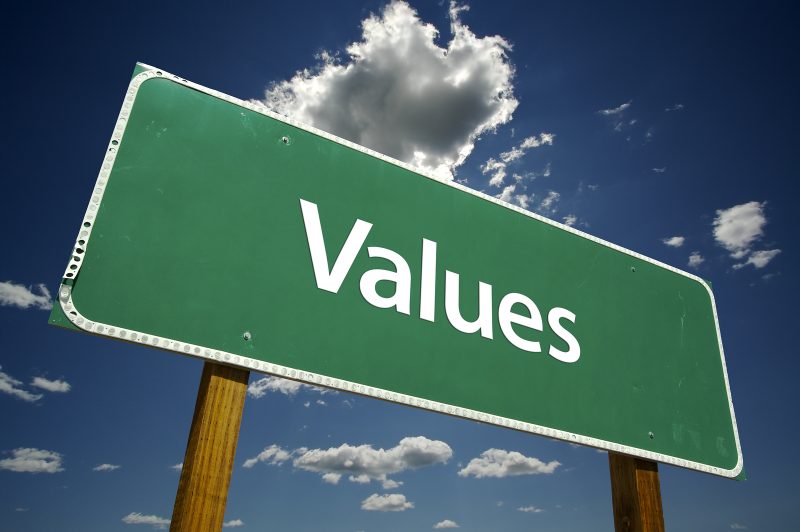When we first start a new job, we are given a title, we belong to an organisation, we are given rules and policies and procedures that we must follow.
We are usually inducted into the company values and mission statement that we must live and breathe and we are told how we should behave and act at work.
But what happens when these values are nothing like our own and you don’t feel good about them?
I have had jobs where I had to follow institutional values that were completely against my own and I felt miserable every day. I didn’t believe in the dictatorial leadership style and I sat in meetings and listened to team members who were made to feel bad because they hadn’t made their sales that month. When I suggested there might be a better way to motivate team members towards achieving sales I was told to toughen up and not become emotional about the situation. It was when I finally realised that I could no longer work for a company where my values were so conflicting, that I had the courage to finally move on.
Best decision I ever made!
I am not saying just throw in your job on a whim, however I am saying it is very important that you do a value check so you can become really clear about what type of company you choose to work for. I say choose because once you become clear opportunities will open up.
Our values shape us and they determine the actions we take, the decisions we make and the people we want to be around. If we don’t go with our gut and stick to what we truly believe in we end up dreading work and we are constantly dejected. Research has clearly demonstrated that many people struggle to align their own values with those of organisations where they often lack meaning, personal satisfaction and passion for what they do. This has a negative impact on other parts of the person’s life, therefore the choice of where, when, how and what to do when working becomes an important question to ask yourself.
Richard Bolles, in his book “What Color Is Your Parachute?” makes a valid point with his most enduring question ‘What do you most love to do?’. He once explained why the love bit is so important: if you love the work you do, your passion will get you up in the mornings. Bolles encouraged career self-reliance: ‘If it’s to be, it’s up to me to make the change”
Imagine the difference between waking up in the morning excited to start the day with a sense of determination as opposed to waking up in the morning and feeling like you are just going through the motions with nothing to look forward to. This is the difference in understanding what is important to you and living your life doing something that you believe in.
Choose the values that are most important to you, the values that you believe in and that define your character. Adopt them, commit to them, and then live by them. Living your values is one of the most powerful tools available to you to help you achieve your aspirations and goals, and to help you lead and influence others.
Finally, it is important to remember that you are unique and your personal values are yours alone. Your partner’s values may be to earn a significant amount money and yours might be advocating for those less fortunate. This doesn’t make yours any less significant, what it does is give you a big hint of where you would be happy working.
Personal values are about you being totally honest with yourself about what’s most important to you and you alone. Start with an open mind, a blank piece of paper and try not to be influenced by others. Once you know your values and align with your work you will be jumping up every morning looking forward to work.
About the Author:
Sally Healey is a career development practitioner for the Career Development Centre, www.careerdevelopmentcentre.com.au based in Brisbane, Queensland.
Sally holds a Graduate Certificate in Career Development Education, is a Professional member of the Career Industry Council Australia www.cica.org.au.
As well as Professional Member of The Career Development Association Australia www.cdaa.org.au,
and an Industry reference committee member of the Australian Industry and Skills Committee.






